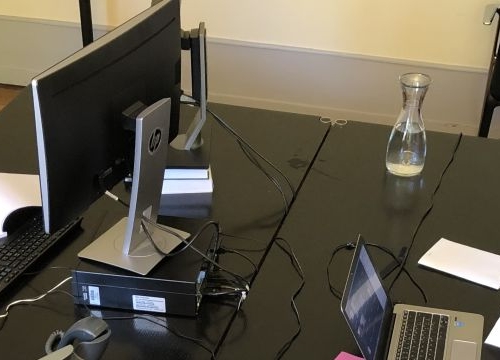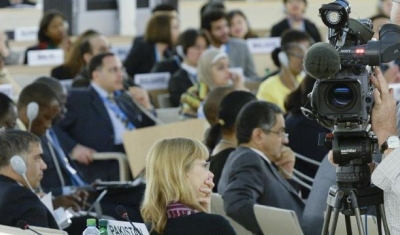Towards Inclusive Cities: Experts Discuss Online the Situation of Persons with Disabilities and Older Persons


Geneva Academy
25 May 2020
Building on a previous expert meeting on human rights in inclusive cities, this second online conference – co-organized by the Geneva Human Rights Platform, UN-Habitat, the Office of the UN High Commissioner for Human Rights and the Geneva Cities Hub in partnership with the World Blind Union, World Enabled and the General Assembly of Partners – focused on persons with disabilities (PWD) and older persons at the city level.
During two days around 60 experts – representatives of organizations of PWD, experts from United Nations (UN) and governmental agencies, members of the UN Committee on the Rights of Persons with Disability (CRPD) and the UN Special Rapporteur on persons with disabilities – analysed existing challenges and barriers for PWD and older persons in an urban context and made specific recommendations thereof. Where possible, participants also identified specific actions and interventions to incorporate into local policies.
‘Persons with disabilities and older persons continue to face barriers in their day to day activities and as such, there is an urgent need to develop solutions that meet their needs and remove these barriers’ underlines Kamelia Kemileva, Director a.i. of the Geneva Cities Hub.

An Inclusive Online Meeting
‘Ensuring the accessibility of the online meeting to all was a key imperative for us. As such, closed captioning, simultaneous interpretation in three languages – French, English and Spanish – as well as sign language interpretation were provided’ explains Felix Kirchmeier, Executive Director of the Geneva Human Rights Platform.
‘The World Blind Union (WBU) appreciates the initiative by UN-Habitat to engage experts, such as organized constituencies of persons with disabilities, to generate learning and actionable recommendations critical for UN-Habitat to accelerate mainstreaming throughout its operations, programmes and UN inter-agency coordination to create more inclusive cities’ says Hannes Juhlin Lagrelius, WBU Program Officer and Co-Chair of the General Assembly of Partners-Partner Constituent Groups of Persons with Disabilities.

Towards Inclusive Cities for All
This meeting, financed by the Swedish International Development Acency (SIDA) through UN Habitat, is the second of a series that aims at developing operational documents to translate human rights standards at the city level for local governments, city-level practitioners and decision-makers, as well as national governments interested in local governance issues.
The next meeting, concluding this series, will focus on gender aspects in cities. The outcome documents of these three conferences will be available publicly at the end of the series.











